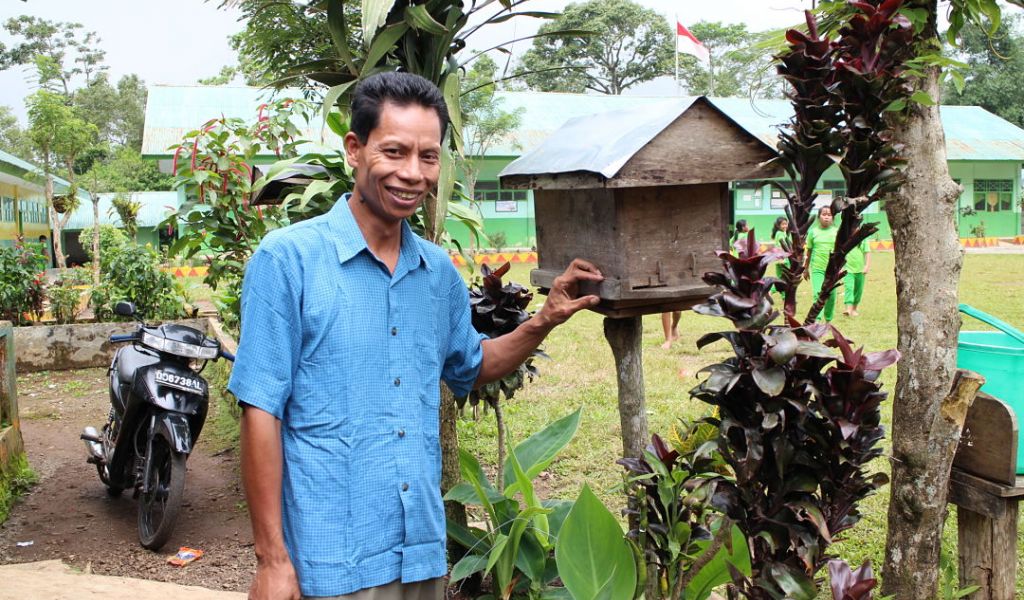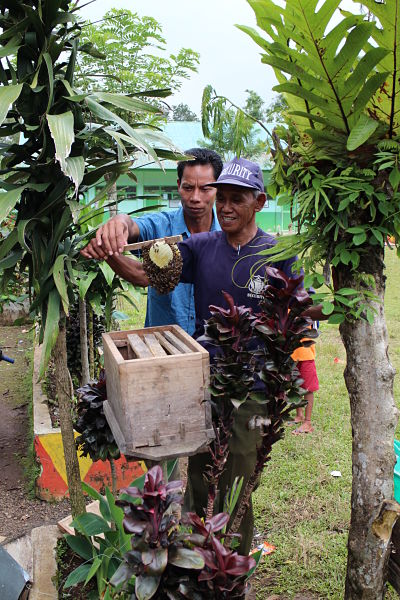Money from honey

Perhaps my children won’t get to go to the best schools in the city, but they must have a healthy and nutritious diet. If you are saying that honey is good for your health, then you must teach me how to keep bees
Running for his life, Rabani doesn’t wait to watch what happens. All the boys are running helter-skelter, some with amused looks and others ready to burst into tears. Suddenly, he hears buzzing right above his head, then a pang of pain pierces just below his left eye. Instinctively his hands go up to his face, but too late! Another sting pierces near his right eye. His hands frantically rub at the bee stings, to no avail. Three days later, Rabani is finally able to open his eyes fully and see the smirks on the faces of his primary school classmates. Thus begins Rabani’s journey with bees, at the age of eight.
In the afternoons, Rabani watches the older kids from school collect entire honey combs from the forest. ”Watch and learn,” he tells himself, for soon he plans to get his own honey-combs. He is already familiar with the forest, from the many trips he made with his father, now it is just a matter of finding the bees.
Nearly 30 years later, in 2010, Rabani finds himself shocked at what he hears: “You have to find the queen bee and the rest will follow into your hive box.” “What?” he thinks. “All this time I was getting stung while using my sarong to catch the bees when all I had to do was find the queen bee!” Rabani is attending a training on bee-keeping and management, conducted by RECOFTC and the University of Hasanuddin. It is one of the many trainings that the villagehead has been inviting the community members to attend. That day in April, and in subsequent trainings, Rabani learns all he needs to set up a new hive and harvest honey.
By the end of the second training, Rabani sells his first bottle of honey to the trainer himself, for 35,000 Indonesian Rupiah (US$4). It is the first time he is paid for his honey. Within a week, he gets a call from the trainer’s hometown – Makassar, the largest city in South Sulawesi. The caller says, “I tasted the honey from your farm, and I would like to buy 200 bottles of honey from you.” Rabani answers, “I am so glad that you like the honey, but I am sorry I do not have that much honey to sell to you.” He hangs up the phone with a mixture of excitement and disappointment. He knows his honey is good, but he needs a plan to produce more.
The next day, Rabani decides it is time to act on a recommendation made during his bee-keeping training – in order to develop and sustain a non-timber forest product enterprise, he needs to start a group of bee-keepers and set up an enterprise.

He begins speaking with farmers from across the village, including his elder brother who has been keeping bees for years. By the end of the week, Rabani recruits 13 community members to come to a meeting. Rabani shares the news about the call from Makassar with them and tells them about his plans to start a honey enterprise. Some look interested and others don’t understand why it is necessary. One shares his doubts, “But honey doesn’t have much value, why should I invest time into bee-keeping, it’s easier to get the honeycomb from the forest…anyway, you just got one call.”
Rabani shares what he learned about honey from the training – how easy it is to catch bees and the health benefits of honey, “I just knew that honey was good for you and now I know exactly why, let me tell you…” Suddenly more faces light up. They are pleasantly surprised at how easy it is to catch bees and what they only think of as something ‘sweet’ to enjoy is indeed more than just sweet.
Saenuddin is one of the people listening to Rabani. He didn’t attend the trainings and he is not an avid bee-keeper. But while listening to Rabani, his interest peaks when he mentions the health benefits of honey. Saenuddin thinks of his two small children and says, “Perhaps my children won’t get to go to the best schools in the city, but they must have a healthy and nutritious diet. If you are saying that honey is good for your health, then you must teach me how to keep bees.”
Over the next few weeks, Rabani trains eight community members who agree to form a group. He shows them how to make the boxes, the tools they need, how to catch the bees and harvest the honey. Within a few months, the group has a total of 100 boxes. Today, four years after the training, Rabani says, “thank God I learned how to keep bees!”

